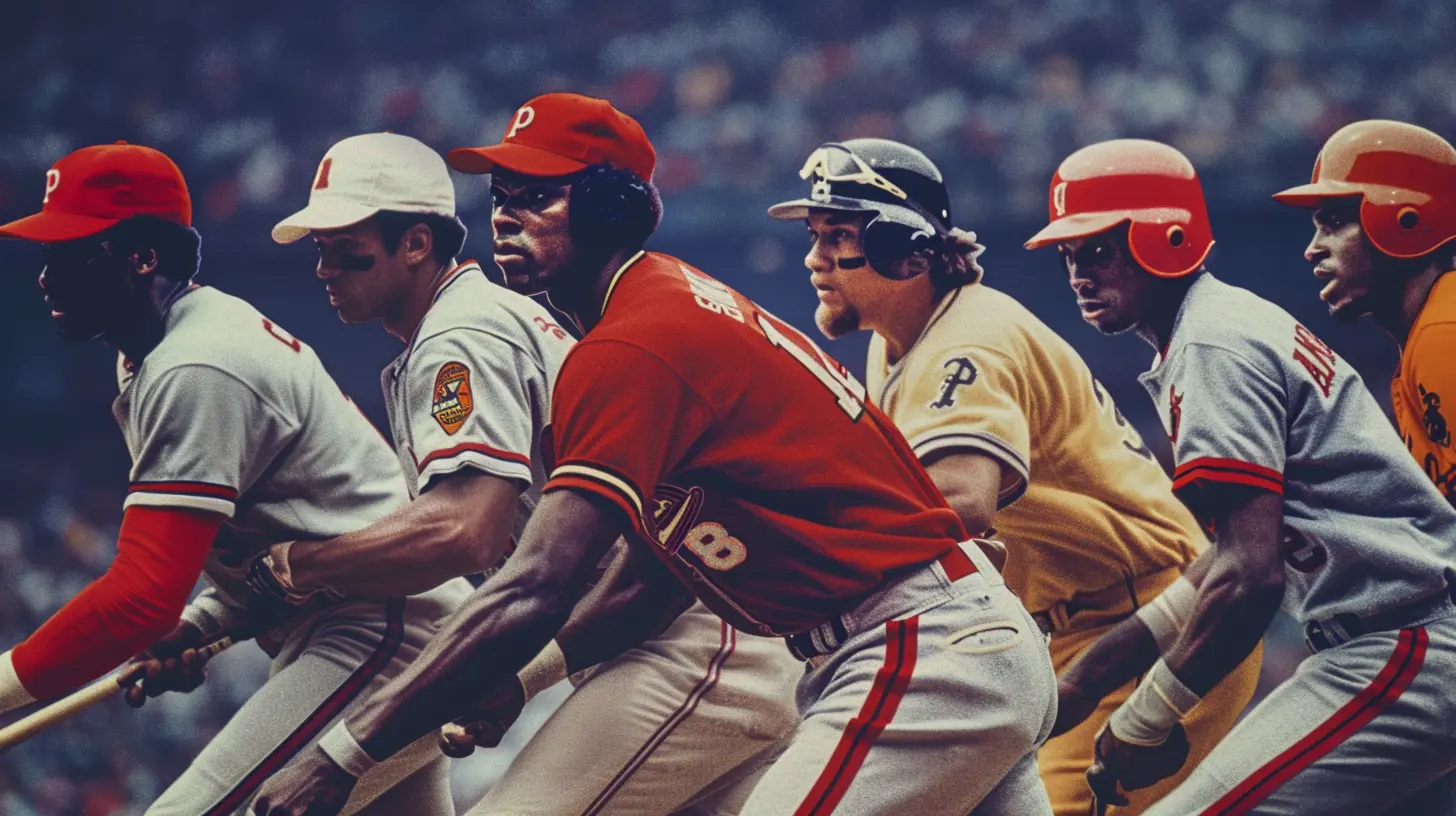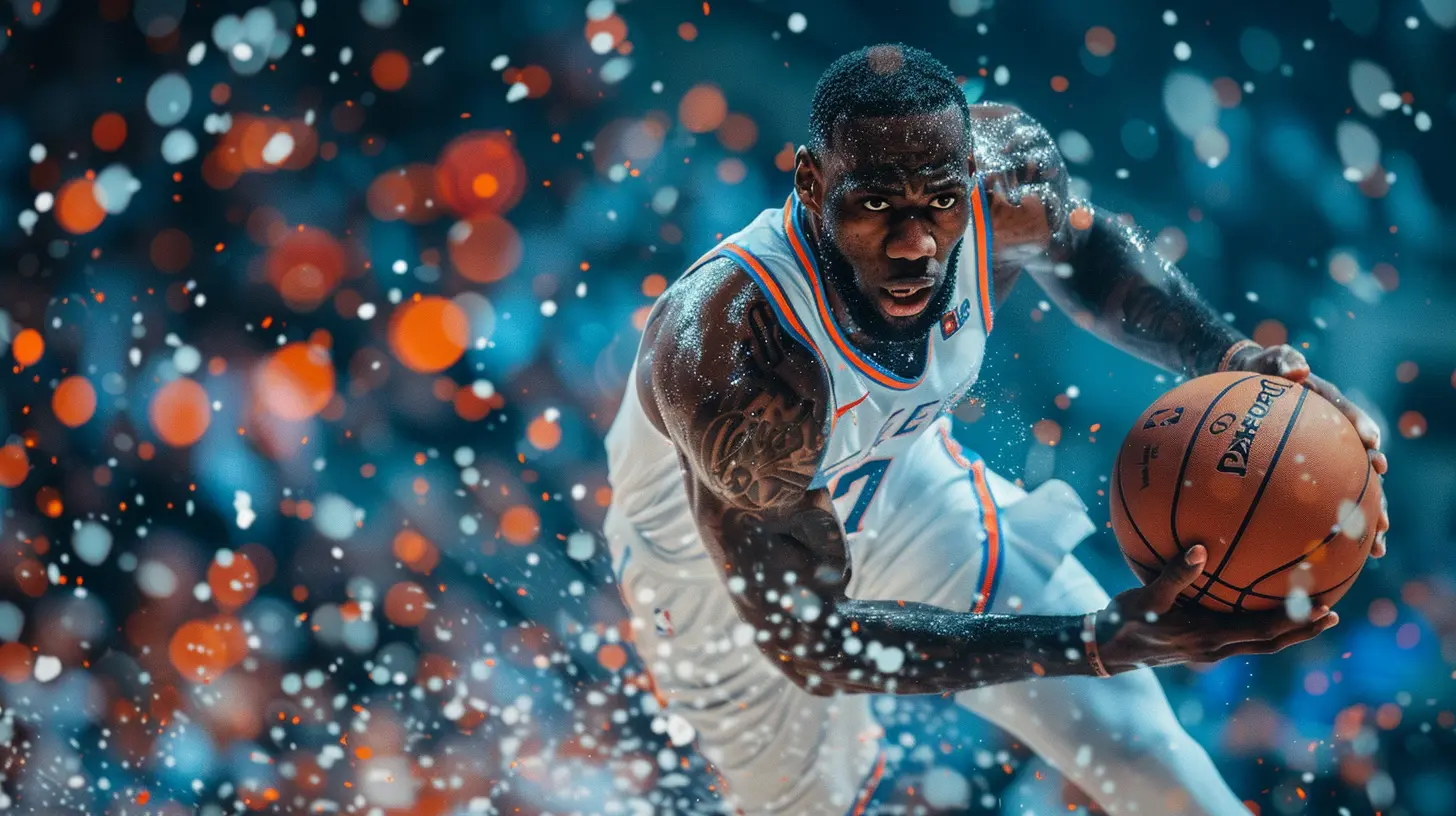Game-Changing Trades That Altered League History
26 November 2025
Some trades shake up a roster, while others completely reshape the league. Over the years, we've witnessed blockbuster deals that not only changed the fate of individual franchises but also rewrote the history of their respective sports. These trades often come with controversy, risk, and a whole lot of emotions, but one thing is certain—they leave a lasting impact.
In this article, we'll dive into some of the most game-changing trades in sports history, breaking down why they happened, their impact, and how they altered the landscape of their leagues forever.
1. Babe Ruth to the Yankees (1919) – The Curse of the Bambino
The Trade That Doomed Boston
If there's one trade that stands out in baseball history, it's the sale of Babe Ruth from the Boston Red Sox to the New York Yankees in 1919. The Red Sox owner, Harry Frazee, infamously sold Ruth for $100,000 to finance a Broadway play. What followed was nothing short of legendary.How It Changed Everything
- The Yankees, once an afterthought in Major League Baseball, became the most dominant team in history. With Ruth leading the way, they won four World Series titles in the next 15 years.- Boston suffered an 86-year championship drought, better known as The Curse of the Bambino.
- Ruth revolutionized baseball by making the home run a focal point of the game.
This wasn't just a trade; it was a seismic shift in the power structure of baseball.
2. Wayne Gretzky to the Kings (1988) – The Trade That Changed Hockey in America
The Heartbreaking Departure
Wayne Gretzky, the greatest hockey player of all time, was the face of the Edmonton Oilers when he was shockingly traded to the Los Angeles Kings in 1988. Gretzky had led the Oilers to four Stanley Cups, but Edmonton’s owner, Peter Pocklington, saw financial opportunities in trading him.Why It Was a Game-Changer
- Gretzky’s move to Los Angeles helped popularize hockey in non-traditional markets, leading to growth in the U.S.- The NHL expanded into cities like Anaheim, San Jose, and Phoenix in the years that followed.
- The Oilers, despite winning one more Cup in 1990, never regained their dynasty form.
This trade didn’t just affect two teams—it helped grow the NHL into a bigger, more widespread league.
3. Herschel Walker to the Vikings (1989) – The Trade That Built a Dynasty
The Biggest Trade in NFL History
The Dallas Cowboys sent star running back Herschel Walker to the Minnesota Vikings in one of the most lopsided trades in sports history. The Cowboys received a massive haul of draft picks, which they used to draft players who would turn them into a dynasty.How It Changed the NFL
- The Cowboys used the draft picks to build a team that won three Super Bowls in the '90s.- Minnesota, expecting Walker to be the missing piece for a championship run, saw their investment fail miserably.
- This trade is often used as a case study in asset management and dynasty-building.
A single trade gave the Cowboys the building blocks for one of the greatest dynasties in football history.
4. Kareem Abdul-Jabbar to the Lakers (1975) – The Birth of Showtime
A Superstar Wants Out
Kareem Abdul-Jabbar, already a dominant force in Milwaukee, requested a trade from the Bucks to a larger market. The Lakers won the sweepstakes and acquired him for a package of players and picks.Why It Was a Game-Changer
- Kareem became the foundation of the Lakers' success for nearly two decades.- He won five championships in L.A., later teaming up with Magic Johnson for the Showtime Lakers.
- Without this trade, the Lakers might not have been a powerhouse, and the NBA’s greatest rivalry—Lakers vs. Celtics—may never have reached its legendary status.
This trade didn’t just help the Lakers; it reshaped NBA history.
5. Kevin Garnett & Ray Allen to the Celtics (2007) – The Formation of the Big Three
An Era-Defining Move
The Boston Celtics were struggling in the mid-2000s. That all changed when they traded for Kevin Garnett and Ray Allen in the summer of 2007. These two superstars joined Paul Pierce to form what became known as The Big Three.The Impact on the NBA
- The Celtics won an NBA Championship in 2008 and remained contenders for years.- This trade inspired future superteams, including LeBron James’ move to the Miami Heat.
- It changed how teams build rosters, emphasizing superstar collaborations rather than individual dominance.
This trade wasn’t just about winning—it changed the very blueprint of championship teams.
6. Peyton Manning to the Broncos (2012) – A Legacy-Rewriting Move
A Franchise-Altering Signing
While this wasn’t a trade (but rather a free-agent signing), Peyton Manning leaving the Colts for the Broncos deserves mention. Indianapolis moved on from him after a career-threatening neck injury, and the Broncos took a gamble.How It Changed the League
- Manning led Denver to two Super Bowls, winning one in 2015.- He broke numerous records, including the single-season touchdown record (55 TDs in 2013).
- His success proved that elite quarterbacks could thrive post-injury and at an older age.
Manning’s arrival took Denver from an average team to an immediate contender.
7. LeBron James to Miami (2010) – The Decision That Changed the NBA
Not Exactly a Trade, But a Power Shift
LeBron James' move to Miami wasn’t a trade, but it was a game-changing move that altered league history. In a nationally televised special called The Decision, LeBron announced he was taking his talents to South Beach to join Dwyane Wade and Chris Bosh.The Fallout and Impact
- Miami won two championships and appeared in four straight NBA Finals.- This move ushered in the era of player empowerment, where superstars controlled their destinies.
- It cemented LeBron’s legacy as he proved he could win multiple championships.
Without this move, the concept of "superteams" might not have become a trend in the NBA.
Final Thoughts
Trades don't just swap players; they change legacies, define dynasties, and sometimes even shift the entire balance of a league. Whether it was Babe Ruth making the Yankees a powerhouse, Gretzky turning the NHL into a national sensation, or LeBron revolutionizing player movement, these trades altered history in ways few could have predicted.If there's one takeaway, it's this—sports history is written in more ways than just championships. Sometimes, a single trade is all it takes to change everything.
all images in this post were generated using AI tools
Category:
Player TradesAuthor:

Easton Simmons
Discussion
rate this article
2 comments
Valencia Ramos
Like swapping a sandwich for a unicorn! These trades not only reshaped rosters but also turned the league into an unpredictable circus—popcorn, anyone?" 🥳🏀✨
December 6, 2025 at 9:17 PM

Easton Simmons
Absolutely! These trades truly transformed the landscape of the league, making every game feel like a thrilling spectacle. Popcorn ready! 🍿🏀✨
Lindsey McCool
Great article! It’s fascinating to see how strategic trades have shaped the league's landscape. Highlighting key moments helps fans understand the broader implications of these decisions. It would be interesting to see a section on how these trades impacted team cultures and fan loyalty over time.
December 2, 2025 at 3:30 AM

Easton Simmons
Thank you for your feedback! I'm glad you enjoyed the article. Exploring the impact of trades on team culture and fan loyalty is a great idea for future pieces!

![The Heart and Hustle of [Player Name]: A Profile in Perseverance](/pictures/blog/small/the-heart-and-hustle-of-player-name-a-profile-in-perseverance_3.webp)
